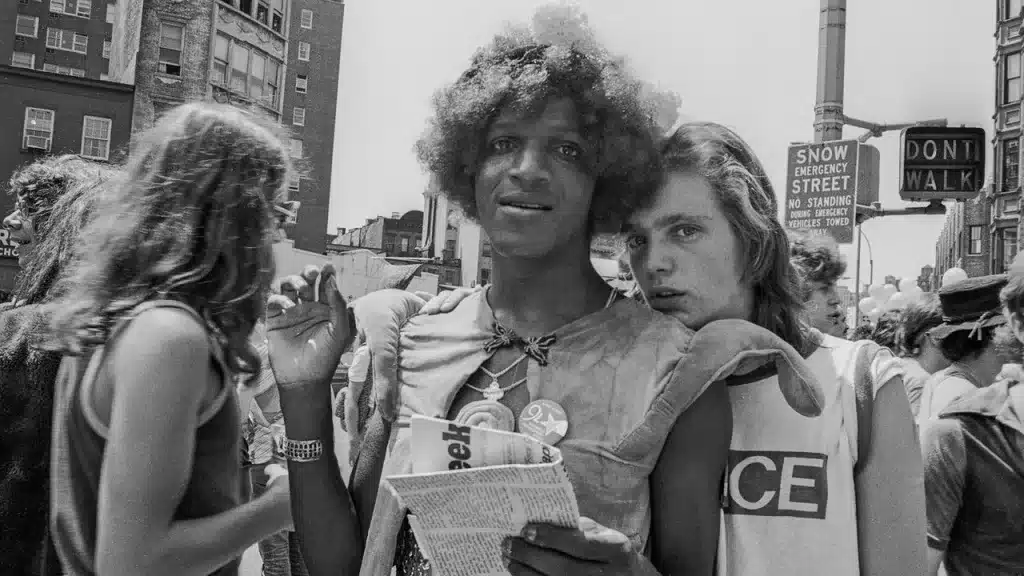The Stonewall Riots of 1969 were a series of spontaneous demonstrations by members of the LGBTQ+ community in response to a police raid at the Stonewall Inn in New York City. This event is widely considered a pivotal moment in the history of the LGBTQ+ rights movement, and its significance continues to be felt today in LGBTQ+ politics.
The Stonewall Inn and Police Raid
The Stonewall Inn was a popular gathering spot for members of the LGBTQ+ community in the late 1960s. At the time, it was one of the few places in New York City where LGBTQ+ people could socialize without fear of being arrested for simply existing. However, the Stonewall Inn was not a legal establishment, and police raids were common.
On June 28, 1969, police raided the Stonewall Inn once again. This time, however, the patrons of the bar fought back. They refused to be arrested without cause, and their resistance quickly turned into a riot that lasted several days.
The Significance of the Riots
The Stonewall Riots were significant for several reasons. First and foremost, they marked a turning point in the LGBTQ+ rights movement. Before Stonewall, LGBTQ+ people were largely invisible in mainstream society. The riots brought attention to the discrimination and violence that LGBTQ+ people faced daily, and they helped to galvanize the community around the fight for equal rights.
Secondly, the riots led to the formation of several LGBTQ+ rights organizations, including the Gay Liberation Front and the Gay Activists Alliance. These organizations helped to build momentum for the LGBTQ+ rights movement and provided a platform for activists to push for change.
Finally, the Stonewall Riots paved the way for future LGBTQ+ activism and progress. Without the riots, it is unclear whether the LGBTQ+ rights movement would have gained the traction it did in the years that followed. The Stonewall Riots were crucial in the fight for LGBTQ+ rights, and their significance cannot be overstated.
Impact on LGBTQ+ Politics
The Stonewall Riots had a profound impact on LGBTQ+ politics. They helped to bring LGBTQ+ issues to the forefront of the political conversation and forced lawmakers to address the discrimination and violence faced by the LGBTQ+ community.
In the years following Stonewall, LGBTQ+ activists made significant strides in the fight for equal rights. The Gay Liberation Front and the Gay Activists Alliance organized protests and rallies, lobbied lawmakers, and helped build a support network for the LGBTQ+ community.
These efforts eventually led to the passage of several key pieces of legislation, including the repeal of “Don’t Ask, Don’t Tell,” the legalization of same-sex marriage, and the passage of anti-discrimination laws.
Today, LGBTQ+ issues continue to be an important part of the political conversation. While significant progress has been made, much work still needs to be done to ensure that LGBTQ+ people are treated with dignity and respect.
Conclusion
The significance of the Stonewall Riots in LGBTQ+ politics cannot be overstated. The riots marked a turning point in the fight for LGBTQ+ rights and helped to galvanize the community around the fight for equal rights. They also paved the way for future LGBTQ+ activism and progress, and their impact continues to be felt today.
While much progress has been made in the fight for LGBTQ+ rights, much work remains to be done. The legacy of the Stonewall Riots serves as a reminder of the power of activism and the importance of fighting for what is right. The LGBTQ+ community has come a long way since the Stonewall Riots, but there is still much work to be done to ensure that LGBTQ+ people are treated with dignity and respect.
One of the most significant ways the Stonewall Riots impacted LGBTQ+ politics was by putting pressure on lawmakers to address the discrimination and violence faced by the LGBTQ+ community. In the years following the riots, LGBTQ+ activists and allies worked tirelessly to push for legislative change.
Their efforts eventually led to the passage of several key pieces of legislation, including the repeal of “Don’t Ask, Don’t Tell” in 2010, which ended the U.S. military’s policy of requiring LGBTQ+ service members to keep their sexual orientation a secret. This was a major victory for LGBTQ+ rights activists who had been fighting against the policy for nearly two decades.
Another significant victory for LGBTQ+ rights came in 2015, when the U.S. Supreme Court legalized same-sex marriage nationwide. This landmark decision was the culmination of decades of activism and legal battles, and it represented a major step forward in the fight for LGBTQ+ equality.
Despite these victories, however, much work must be done to ensure that LGBTQ+ people are fully protected under the law. For example, while same-sex marriage is now legal in the United States, LGBTQ+ people still face discrimination in many other areas of life, such as employment, housing, and public accommodations.
Furthermore, the LGBTQ+ community continues to face violence and harassment in the United States and worldwide. According to a report by the Human Rights Campaign, at least 44 transgender or gender-nonconforming people were killed in the United States in 2020, the majority of whom were Black or Latinx.
This underscores the ongoing need for activism and advocacy in the fight for LGBTQ+ rights. The legacy of the Stonewall Riots serves as a reminder of the power of collective action and the importance of standing up for what is right.
In conclusion, the significance of the Stonewall Riots in LGBTQ+ politics cannot be overstated. The riots marked a turning point in the fight for LGBTQ+ rights and helped to galvanize the community around the fight for equal rights. They also paved the way for future LGBTQ+ activism and progress, and their impact continues to be felt today.

